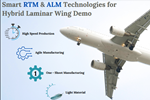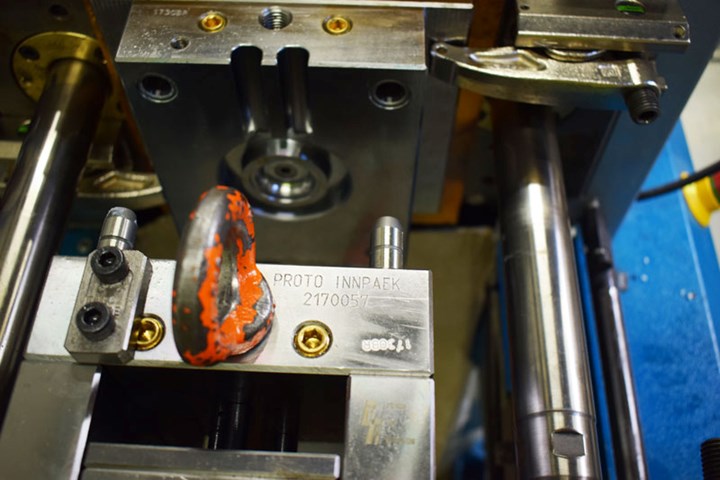INN-PAEK project to develop 100% recyclable, lightweight thermoplastic flange wheels for future aircraft
The AITIIP Technology Center leads this research with partner Liebherr Group to develop a technology by June 2023 that contributes to more sustainable, eco-friendly production systems.
The European INN-PAEK project, led by AITIIP Technology Center (Zaragoza, Spain), in collaboration with the Liebherr Group (Bulle, Switzerland), aims to develop a technology that enables the manufacture of flange wheels for aircraft cooling systems that use 100% recyclable materials. The ultimate goal is to develop more sustainable and eco-friendly production system for the aviation industry. This project, which has a budget of around €1 million, will conclude in June 2023.
The objective of the INN-PAEK project is to demonstrate the technical, economic and environmental feasibility of manufacturing a thermoplastic flange wheel. Thermoplastic composites were chosen for several reasons — including the material’s recyclable properties, which are useful for aeronautics and transport, as well as its light weight. Project partners intend to replace the conventional manufacturing process of current metal flange wheels, which requires the welding of different parts, with injection molding, achieving a one-shot high-speed production process, as well as reduced costs and energy consumption. This will also ensure a more adaptable process overall, which will make the particular and complex geometries inherent to these types of parts possible.
INN-PAEK will provide different results during the development of its research. On the one hand, regarding the materials, the project seeks to adjust thermoplastic formulations for reaching feasibility for the transformation process, and to modify the material to hold extreme temperatures and chemicals, as well as to reach 40% of reduction weight by introducing new materials such as carbon fiber. On the other hand, through the application of new manufacturing processes (such as those mentioned above) it aims to improve sound absorption capabilities and to reduce the final cost by 30%.
The INN-PAEK project has received funding from the Clean Sky 2 Joint Undertaking (JU). The JU receives support from the European Union’s Horizon 2020 research and innovation. Clean Sky 2 works with the ambitions of creating greener and more effective technologies for the next paradigms of air travel. The program highlights that each new generation of aircraft saves between 15% and 20% in fuel and CO2 compared to the aircraft it replaces. In addition, the demand will continue growing, creating an estimated need for 40,000 new aircraft over the next 20 years.
Related Content
-
Cycling forward with bike frame materials and processes
Fine-tuning of conventional materials and processes characterizes today’s CFRP bicycle frame manufacturing, whether in the large factories of Asia or at reshored facilities in North America and Europe. Thermoplastic resins and automated processes are on the horizon, though likely years away from high-volume production levels.
-
The potential for thermoplastic composite nacelles
Collins Aerospace draws on global team, decades of experience to demonstrate large, curved AFP and welded structures for the next generation of aircraft.
-
Materials & Processes: Composites fibers and resins
Compared to legacy materials like steel, aluminum, iron and titanium, composites are still coming of age, and only just now are being better understood by design and manufacturing engineers. However, composites’ physical properties — combined with unbeatable light weight — make them undeniably attractive.














